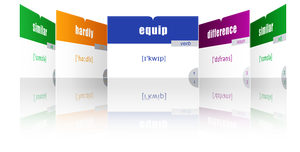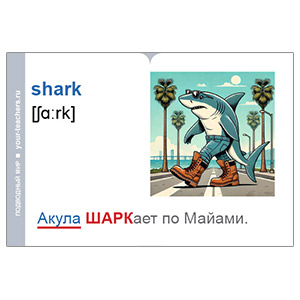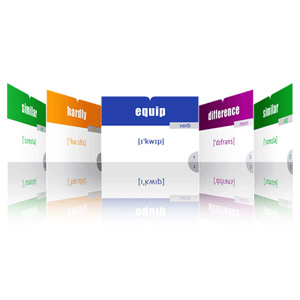Thomas
- Подробности
- 4279
Living English
|
Learning foreign languages |
|
|
#1 There are many very good reasons to learn other languages. Very little clear, detailed communication can occur between people who don't have a common language. Learning the languages of others helps in talking to people, reading and writing things, and in understanding the TV and films from other countries, and opens up a much wider range of sources of information. |
# Есть много очень хороших причин для изучения иностранных языков. Между людьми, не имеющими общего языка, может происходить очень мало ясного детального общения. Изучение языков помогает разговаривать с людьми, читать и писать, понимать ТВ и фильмы других стран и открывает более широкий спектр источников информации. |
|
#2 When travelling and when you want to see the world, you can manage a lot better if you understand the signs that you read around you, and if when you meet people and want to ask questions, if you can speak to them in their own language, they're often a lot more friendly and helpful than if your first question is : "Do you speak English?". If you're working in a field where interesting things are happening abroad, like science, business or medicine, and you want to be up to date with progress in that field, you can't always wait for the latest reports to be translated into your own language, as this often doesn't happen for some time, especially if you speak a language like Hungarian where there are only a limited number of translators, who are often expensive, and so only selected information is translated. |
# Когда вы путешествуете и хотите посмотреть мир, у вас это лучше получится, если вы будете понимать знаки вокруг, и если при встрече с людьми вы захотите задать вопросы, и будете говорить на их родном языке, то они будут гораздо дружелюбнее и будут готовы помочь в большей степени, чем если ваш первый вопрос будет: "DoyouspeakEnglish?". Если вы работаете в какой-то сфере, где интересные события происходят за рубежом, как например, наука, медицина или бизнес, и вы хотите следить за прогрессом в вашей области, вы не всегда можете ждать, пока все последние доклады переведут на ваш язык, потому что часто на это требуется время, особенно если вы говорите на таком языке, как венгерский, на который имеется ограниченное число переводчиков, и часто они дорого стоят, и поэтому переводится только выборочная информация. |
|
#3 I think it's very valuable and helpful in learning languages if you start from an early age. Many people can learn the best up to about the age of 20, as they have a lot of time for it which later, with family and work, often isn't possible. Maria thinks that learning a language after the age of twenty or so needs a lot of enthusiasm, and more time, as the learning process is generally a little slower for older people than for people with young impressionable minds. After twenty, it's very difficult to learn more languages if you've not already learned one before, as it's a special way of learning. It's not like learning maths or science - instead it involves a different way of thinking. You have to learn to think in another language. This is like music, maybe. You have to learn how to learn another language as well as learning the grammar and vocabulary involved, so if you've learned one extra language already, it's easier to learn more. I think that for many multilingual people, the second language is a lot easier than the first. |
# Мне кажется, важно начинать изучать иностранные языки в раннем возрасте. Многие могут учиться в лучшем случае примерно до 20 лет, потому что у них есть много времени для этого, а позже с семьей и работой это часто невозможно. Мария считает, что изучения иностранного языка после 20 лет требует большого энтузиазма и много времени, так как, в целом, процесс обучения несколько замедляется у людей старшего возраста, по сравнению с молодыми, у которых активно действуют мозги. После 20 лет очень трудно изучать языки, если вы до этого не изучали ни одного, потому что это требует особого подхода. Это не похоже на изучение математики или других наук и включает в себя другой способ мышления. Вам приходится учиться мыслить на другом языке. Может быть, это похоже на музыку. Надо учиться тому, как учить иностранный язык, а также учить грамматику и слова, поэтому, если вы уже знаете один иностранный язык, вам легче изучить больше. Мне кажется, для многоязычных людей изучение второго иностранного языка гораздо легче первого. |
|
#4 I think that the learning process really starts to work when you feel that it's important and that you have a reason to learn it - if you can find the language useful, not just part of a school curriculum. For example, if you learn English and you are confronted with it on the radio, on TV, and if you listen to music with English words. |
По-моему, процесс изучения начинается по-настоящему, когда вы понимаете, что это важно, и когда у вас есть цель изучения языка, если вы находите язык полезным, а не просто учите его по программе в школе. Например, если вы учите английский и сталкиваетесь с ним на ТВ или радио или слушаете музыку с английскими словами. |
|
#5 The knowledge becomes a lot more thorough, if you don't just learn from language books but also other sources. When you realise that there are many sources from which you can learn a language and you really use them, for example when you listen to songs with words in that language or watch television programmes in the language and try to understand, or talk to people who speak that language and also read books in that language, then you really can start to make progress. If you've been learning a language for a few years, it can really be a push to spend time in a country where that language is spoken and where native speakers are living. |
# Знания становятся гораздо прочнее, если вы пользуетесь многими источниками, а не просто учитесь по учебникам. Когда вы понимаете, что есть много источников изучения языка, и их действительно используете, например, когда вы слушаете песни или смотрите ТВ на этом языке, пытаетесь его понять или разговариваете с людьми, которые говорят на этом языке, кроме того, читаете книги на этом языке, то вы по-настоящему начинаете делать успехи. Если вы изучаете язык несколько лет, то толчком может послужить поездка в страну, где на этом языке говорят, и где живут носители этого языка. |
|
#6 People who learned a language for many years in school and were very successful with it often find that when they go to a country where that language is spoken, although they can understand a lot, they really can't say very much. They don't usually start by using very complex tenses and phrases, even if they have learned many, but instead begin by using simple structures. It takes a while hearing people around you using more complicated grammatical structures, before you start to make nice sentences yourself. If you're with native speakers or if people are speaking a language a lot around you, you learn phrases, words and expressions and even sometimes start using them without even recognising that you've learned them. In other countries, you pick up a lot of vocabulary without even realising it. |
# Люди, много лет изучавшие язык в школе и имевшие в нем успехи, часто, попав в страну, где на этом языке говорят, хотя и могут многое понять, но сами не могут много говорить. Обычно они не начинают, говорить большими сложными предложениями, даже если они их изучали, но вместо этого начинают использовать простые структуры. Необходимо некоторое время слушать людей вокруг, прежде чем вы сами начнете составлять нормальные красивые предложения. Если вы общаетесь с носителями языка или вокруг вас много на этом языке разговаривают, вы заучиваете фразы, слова и выражения и даже иногда начинаете их употреблять, не осознавая, что вы их выучили. В других странах вы запоминаете много слов, не отдавая себе в этом отчета. |
|
#7 I don't speak Hungarian very well, but when I'm here in Hungary, my vocabulary becomes greater every day, as I'm confronted with more things and find out the names for them by listening to people or asking. For example, sometimes I have to find out the names for things in shops in order to purchase them. I think it's such a great help to start with a foundation of grammatical structures and rules, into which you can put all the little things, the words, phrases and structures, that you pick up. |
# Я плохо говорю по-венгерски, но когда я в Венгрии, мой словарный запас растет каждый день. Я сталкиваюсь с разными вещами и выясняю их названия, слушая или спрашивая других. Например, иногда приходится спрашивать названия товаров в магазине, чтобы их купить. Мне кажется, очень помогает база грамматических структур и правил, из которой вы лепите слова, фразы и структуры, которые схватываете. |
|
#8 I've found that from the little French I learned in school. On spending periods of time in France, I found that I had a basis upon which to build, and because of this foundation, I could extend my knowledge and understanding quite rapidly, whereas I've been in many countries where I really didn't know anything about the language and it took a very long time to start being able to communicate even minor things in that country's language. A good example of this is that I only learned maybe fifteen words in Hebrew during six months in Israel, because I had no knowledge of the sounds and the characters which are used to make up the words, or of the grammar. |
# Я понял это на том слабом французском, который я изучал в школе. Бывая во Франции, я обнаружил, что у меня есть база, и благодаря этой базе я мог довольно быстро расширить свои знания и понимание, в то время, как бывая во многих странах, где я ничего не знал о языке, мне пришлось потратить много времени, чтобы начать говорить на этом языке хотя бы что-то самое простое. Хорошим примером этого служит то, что я выучил, наверное, пятнадцать слов на иврите за шесть месяцев пребывания в Израиле, потому что я не знал ни звуки, ни буквы для составления слов, ни грамматику. |
|
#9 When learning in school, it's very important to have a good teacher, and not to change teachers too often. If that teacher has a system, and you learn under his system for years, and it's a good system, it can be very good for language learning. It's also important to have regular lessons, if not every day, then at least twice a week, to become proficient at a significant rate. It's also important to have a balance between learning grammar and practising the language. It's good to be taught at least part of the time by a native speaker, and to read books, listen to tapes and watch videos, so that your pronunciation of the language doesn't only come from copying one teacher, but you're given some perspective of the different ways that people say things. |
# В школе очень важно иметь хорошего учителя и не менять учителей очень часто. Если у учителя есть система, и вы занимаетесь по этой системе долго, и система хорошая, это может быть очень результативно для изучения языка. Важно также регулярно заниматься, если не каждый день, то хотя бы два раза в неделю, чтобы достичь видимого прогресса. Важен баланс между грамматикой и практикой языка. Хорошо, чтобы часть занятий велась носителем языка, хорошо читать книги, слушать пленки и смотреть видео, чтобы ваше произношение шло не только от одного учителя, но чтобы вы имели представление о различных способах произношения. |
|
#10 Even if you know very little, it can be very helpful to go to see movies with subtitles. If you see translated what the people are saying in a film, you understand more of what you hear. Language schools can be very helpful, especially if you attend very frequently. Maria attended a summer course in German, which was very intensive, for three weeks. They were having lessons 5 hours a day and only speaking in German, and after this she became very proficient in German very quickly. I think it was also a great boost for her to go to Germany immediately afterwards for a while, to be able to use and practice the knowledge that she gained. |
# Даже если вы знаете очень мало, будет полезно пойти и посмотреть кино с субтитрами. Если вы сможете прочитать перевод того, что говориться в фильме, вы поймете больше из того, что услышите. Языковые школы тоже могут очень помочь, особенно если ходить туда часто. Мария посещала летние курсы в Германии, они были очень интенсивные и длились три недели. У них были уроки по пять часов в день, и говорили только на немецком, после этого Мария стала очень быстро прогрессировать в немецком. Мне кажется, большим толчком было то, что сразу после курсов она поехала на некоторое время в Германию, чтобы применить там знания, полученные на курсах. |
|
#11 One thing about language schools is that large groups can be difficult, as people have different backgrounds, different degrees of knowledge and different reasons for going there, whereas in a normal school everybody wants to pass exams to get into University, and everybody is learning at pretty much the same rate. In a language school, people have very different reasons for going. Some examples: one person is sent by their parents, one wants to go to visit another country and so wants to speak in the language and have the practical knowledge of the language, another needs to take an exam in a few weeks for something completely different, and it can be difficult for these people to work together. |
# Дело в том, что занятия в больших группах в языковых школах могут быть тяжелыми, потому что у людей различное социальное положение, различный уровень знаний и различные причины изучения языка, в то время, как в нормальной школе все хотят сдать экзамены, чтобы поступить в университет, и все учатся примерно с одинаковой скоростью. В языковой школе у людей очень разные причины для занятий. Несколько примеров: одного послали родители, другой едет в страну и хочет говорить на этом языке и получить практические навыки, третий сдает экзамен через несколько недель по совершенно другому поводу, и всем этим людям трудно учиться вместе. |
|
#12 It helps people to learn languages more thoroughly if they're pushed a little. If they have to pass exams at the end of a course, of course, they put more time into learning towards the time of the exam and this time spending many hours a day learning something is very good for the comprehension and ability in using a language. It's important to learn lots of words and expressions, and for this a degree of patience is required. I think it's good if every week you have a little exam or test on the new words that you learned that week at school or in a language school, and this is quite easy to revise for, because you can learn words on the bus or while listening to music, whereas more intensive study requires a clearer mind and more focused attention. |
# В изучении языка помогает и небольшой толчок. Если нужно в конце курса сдать экзамен, то, конечно, люди тратят больше времени на учебу мере приближения к экзаменам, а многочасовые ежедневные занятия очень способствуют пониманию языка и умению его использовать. Важно заучивать много слов и выражений, а для этого нужно терпение. Хорошо, мне кажется, устраивать небольшой экзамен в конце недели на новые слова, изученные за эту неделю в школе или в языковой школе, к нему легко готовиться, потому что можно учить слова в автобусе или когда слушаешь музыку, в то время, как более интенсивное изучение требует ясного ума и большей концентрации внимания. |
|
#13 It's quite good to make people write essays in order to learn languages, to use the knowledge as fully as possible. For example, writing about a topic makes people use as much of their grammatical knowledge as possible and tests the person's vocabulary in a specific field, and teachers can see very clearly from reading an essay how developed somebody's knowledge is of a language. Also, grammatical exercises can be very useful, changing the tense of a sentence, changing a sentence into a question, or making it negative. |
# Хорошо заставлять людей писать сочинения на языке, чтобы как можно полнее использовать знания. Например, сочинение на определённую тему заставляет людей использовать как можно больше грамматики и проверяет их словарный запас в определенной области. А учителя, читая сочинения, могут сразу определить, насколько развиты знания учащегося в языке. Кроме того, очень полезными бывают грамматические упражнения: изменение времени в предложении, преобразование утвердительных предложений в вопросительные или отрицательные. |
|
#14 My own experience of learning languages is very limited, for some reason. Even though I travelled a lot and spent significant periods of time in many countries, I feel that I've been very lazy about learning languages. Maybe this is because I've got used to being in countries where I don't speak much of the language, and have learned to get by without speaking much. Maybe it's possible that I felt that to spend a lot of time learning a language such as Greek or Italian wouldn't be so profitable as to spend time learning new music. So, I've not really put much time or effort into learning languages, especially in countries which I didn't imagine myself spending a lot of time in, as I felt that when I left the country it would be of little use. |
# Мой собственный опыт изучения языка очень невелик, по одной простой причине. Хотя я и много путешествовал и проводил значительные периоды времени в разных странах, мне кажется, я ленился изучать языки. Может быть, это от того, что я был в странах, языком которых я не очень-то владел, и обходился без особых разговоров. Может быть, мне казалось, что тратить время на изучение греческого или итальянского было бы не так выгодно, как потратить его на изучение музыки. Поэтому я не очень много времени и усилий вкладывал в изучение языков, особенно тех стран, где я не собирался быть долго, потому что чувствовал, что после отъезда не мог использовать их в других местах. |
|
#15 I think English people generally speak foreign languages more poorly than other nations because everywhere they go people want to speak English with them. English seems to be becoming quite an international language, and people in many countries are very enthusiastic to learn English. So we find that it's not often necessary to speak in another language, as there are normally people around that want to improve their English and do speak a little bit of English. So English people have a bit of a reputation for being lazy about language learning. I think, for this reason, when I attempt to speak, for example, Hungarian or when an English person does reach a high level in Hungarian, Hungarian people are very happy about it, and very friendly, as it's not so common for English or American visitors to speak to them in their own language. |
# Мне кажется, англичане разговаривают на иностранных языках хуже других, потому что куда бы они ни приехали, люди хотят разговаривать с ними на английском. Английский, похоже, становится международным языком, и люди во многих странах хотят его изучать. Поэтому мы видим, что нам не обязательно разговаривать на другом языке, потому что обычно люди хотят улучшить свой английский, и хотя бы немного говорят на нём. Поэтому англичане имеют репутацию лентяев в отношении изучения иностранных языков. Мне кажется, именно по этой причине, когда я, например, стараюсь говорить по-венгерски, или какой-нибудь англичанин достигает высокого уровня в венгерском, венгры радуются этому и становятся очень дружелюбными, потому что не так уж часто американцы или англичане говорят на их родном языке. |
|
#16 Maybe my poor linguistic abilities are due to my early unsuccessful experiences of trying to learn a foreign language. I became very downhearted about my ability in this respect. We had French lessons for a couple of years at school, but at the time when I changed from secondary school to high school, I found myself a real beginner in a class with many others who had studied French for a lot longer than I had, and who knew a lot more than me. I was always behind them. In fact, the only exam that I failed at high school was in French. Now, saying that, I've found that what I did then was useful, and I hope that if I spend more time in France in the future, which I would like to, I could one day become quite fluent in French. |
# Возможно, у меня слабые лингвистические способности потому, что у меня был неудачный опыт изучения иностранного языка. Я очень пессимистичен по поводу моих способностей в этом отношении. У нас года два преподавали французский в школе, но когда пришло время переходить в старшие классы, я понял, что я только начинающий в классе по сравнению со многими другими, кто изучал французский гораздо дольше меня, и знал язык гораздо лучше меня. Я всегда был в отстающих. Вообще-то, единственным экзаменом, который я провалил в школе, был французский. Сейчас, говоря это, я понимаю, что все, что я делал, не было бесполезным, и я надеюсь, что если я проведу больше времени во Франции, чего бы мне хотелось, то смогу довольно бегло говорить по-французски. |
|
#17 Living in Hungary now I find that my vocabulary is expanding at quite a quick rate, but as I don't have any grammatical grounding in Hungarian, I find it difficult to say very much even though I understand more and more every day. Hungarian is a very difficult language for me because the grammatical structures, the way of saying things, even the way of thinking about things and the perspective of the people are very different to England and the English language. I'm hoping that with more time here and a few lessons, I can change this situation. I've been more interested in learning Hungarian since I met my girlfriend Maria. Now I really have a reason to learn, not just to be able to buy things in shops and order concert tickets. |
# Живя сейчас в Венгрии, я вижу, что мой словарный запас растет довольно быстро, но поскольку у меня нет грамматической основы в венгерском, мне трудно говорить, хотя с каждым днем понимаю все больше и больше. Венгерский очень труден для меня, потому что его грамматика, способы выражения, даже способ мышления и взгляды людей очень отличаются от Англии и английского языка. Надеюсь, что изменю это положение, если проведу здесь больше времени и возьму несколько уроков. Я стал больше интересоваться венгерским с тех пор, как познакомился с Марией. Теперь у меня есть настоящий стимул, а не просто проблема покупок в магазине или билетов на концерт. |
|
#18 My friend Anita is really amazing linguistically. She started to learn in school along with everybody else, but found that she had a natural propensity for learning languages and quickly became fluent in English, German and Russian, all of which she is now very proficient in, and which she can use and understand a lot of synonyms and idioms in. She also went to a language school to learn Chinese, and is now able to simultaneously translate between all of these languages and her native language Hungarian. Because of this, she's offered very good jobs in this field, both as a personal translator and as a group translator, but she finds it very tiring and prefers to work with written material, often translating academic texts or business documents which demand a thorough knowledge of the languages concerned. She often says: "It is never possible for someone who's learning a language to have as thorough a knowledge of it as a native speaker", so sometimes she asks me to help her with explaining some difficult terms or checking over her translations. I find that, considering her age - she is only 23 now - and that she's never been in an English-speaking country, she makes very few mistakes. |
# Моя знакомая Анита удивительно способна к языкам. Она начинала учиться одновременно со всеми другими, но обнаружила, что имеет склонность к изучению языков. Она очень быстро заговорила на английском, немецком и русском языках, в которых теперь хорошо разбирается, знает и употребляет много синонимов и идиоматических выражений. Она также ходила в языковую школу изучать китайский, и теперь может одновременно переводить со всех этих языков на свой родной венгерский. Поэтому ей предлагают хорошую работу по этому профилю: и в качестве личного переводчика, и в качестве группового переводчика, но она очень устает от этого и предпочитает работать с письменными материалами. Она часто переводит научные тексты или деловые бумаги, которые требуют больших знаний языка. Она часто говорит: "Невозможно изучить иностранный язык так же глубоко, как знает его носитель языка", поэтому она иногда просит меня помочь ей с объяснением трудных терминов или с проверкой переводов. Я нахожу, что с учетом ее возраста - ей сейчас всего 23 - и того, что она не бывала в англоговорящих странах, она делает очень мало ошибок. |
|
#19 Another quite remarkable person in this respect is Maria's aunt in Prague. When she was over 70, she was still teaching languages privately. She is very fluent in 6 languages and at the age of 75 she started to learn another, Swedish. |
# Еще один замечательный человек в этом отношении - тетя Марии из Праги. Когда ей было 70, она все еще давала частные уроки. Она хорошо говорит на 6 языках, а в 75 лет начала изучать еще один - шведский. |
|
#20 Maria's family all speak English, so during the first few times we spent together, their knowledge of English was good enough that it wasn't uncomfortable for them to speak to me all of the time in English, but now they are really trying to encourage me to learn Hungarian, and so they speak in Hungarian a lot more. |
# В семье Марии все умеют говорить на английском, поэтому когда я поначалу бывал у них, их знания английского были достаточно хороши, чтобы все время говорить со мной на английском и чувствовать себя удобно, но теперь они по-настоящему поддерживают меня в изучении венгерского и говорят гораздо больше на венгерском. |








 Как правильно изучать английский язык по карточкам (статьи)
Как правильно изучать английский язык по карточкам (статьи)